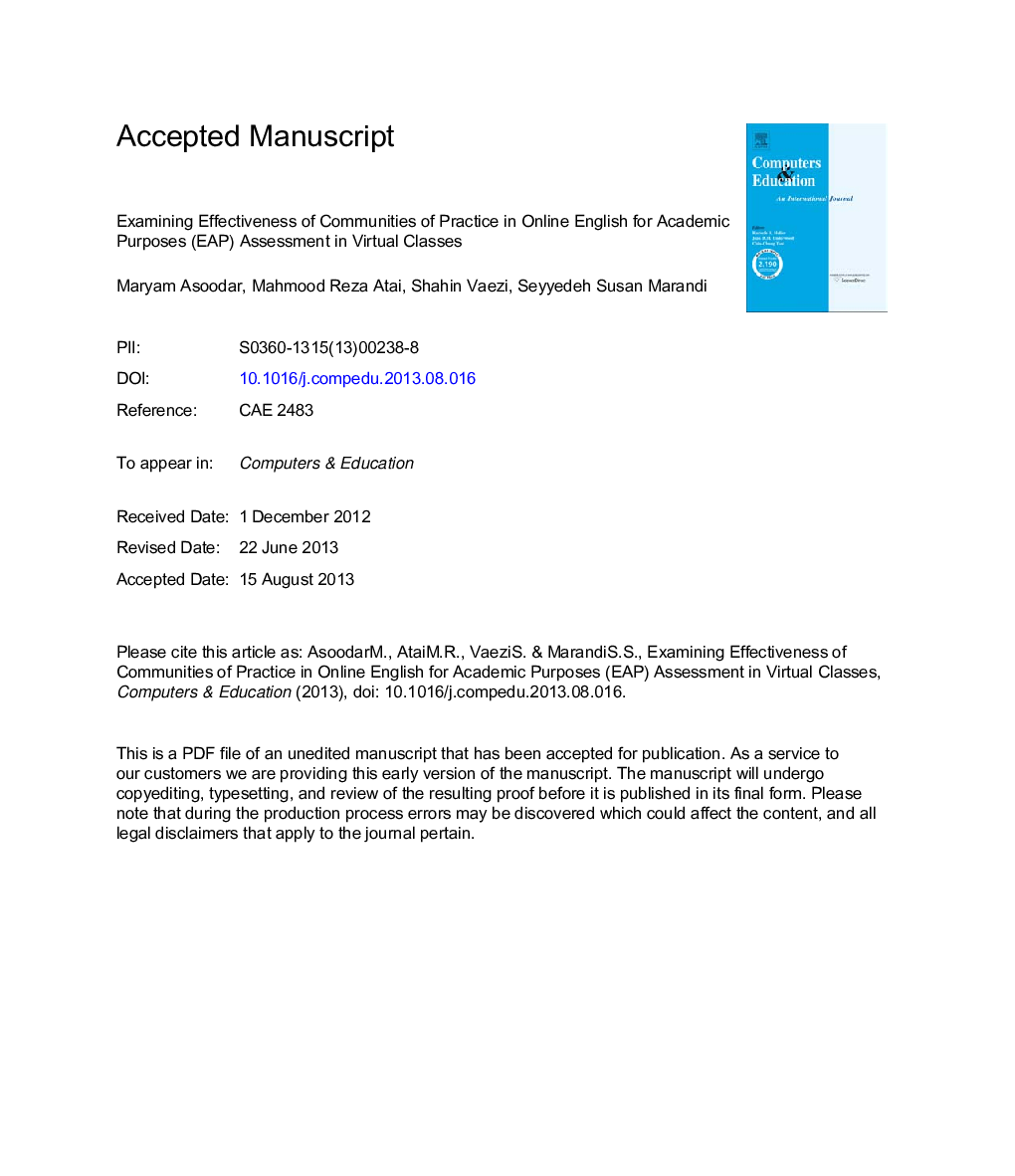| Article ID | Journal | Published Year | Pages | File Type |
|---|---|---|---|---|
| 6835415 | Computers & Education | 2014 | 40 Pages |
Abstract
The literature on English for academic purposes (EAP) methodology highlights the significance of learners' engagement in learning language (Hyland, 2006) in mainstream general and online contexts. Blogs have been recommended in many studies as having the potential to bring the sense of community and collaboration in online classes. Therefore, this study sought to investigate whether blogs in large classes would help students enhance their perceptions of learning. To this end, Forty-two undergraduate students of Information Technology (IT) at an Iranian university participated in a weblog writing course in order to promote collaboration and reflective learning. Instrumentation included a questionnaire of perceived learning and sense of community, semi-structured interviews, and participant observations. The findings revealed a significant difference in perceived learning between the students with low sense of community and those with a high sense of community. Based on the qualitative findings of the study, we suggest an assessment framework incorporating constructivist and social-interactionist theories of learning in order to treat students as members of a community of learning. The findings may promise implications for gearing EAP assessment to more collaborative modes in online courses and suggest a model framework for the assessment of students in EAP online classes.
Related Topics
Social Sciences and Humanities
Social Sciences
Education
Authors
Maryam Asoodar, Mahmood Reza Atai, Shahin Vaezi, Seyyedeh Susan Marandi,
